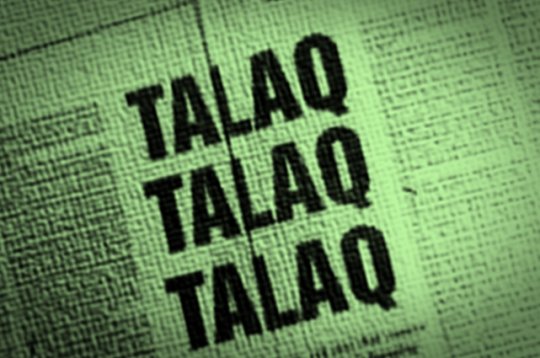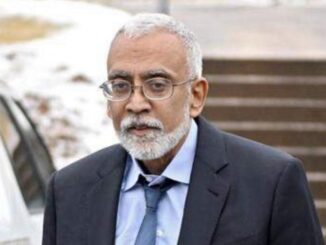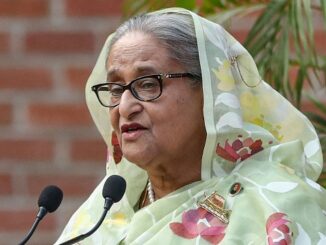
India’s top court has ruled the practice of instant divorce in Islam unconstitutional, marking a major victory for women’s rights activists.
In a 3-2 majority verdict, the court called the practice “un-Islamic”.
India is one of a handful of countries where a Muslim man can divorce his wife in minutes by saying the word talaq (divorce) three times.
The landmark court decision came in response to petitions challenging the so-called “triple talaq” custom.
The cases were filed by five Muslim women who had been divorced in this way and two rights groups.
Women’s rights campaigners have hailed the court’s decision as a historic win. India court bans Islamic instant divorce
There have been cases in which Muslim men in India have divorced their wives by issuing the so-called triple talaq by letter, telephone and, increasingly, by text message, WhatsApp and Skype. A number of these cases made their way to the courts as women contested the custom.
Triple talaq divorce has no mention in Sharia Islamic law or the Koran, even though the practice has existed for decades.
Islamic scholars say the Koran clearly spells out how to issue a divorce – it has to be spread over three months, allowing a couple time for reflection and reconciliation.
Most Islamic countries, including Pakistan and Bangladesh, have banned triple talaq, but the custom has continued in India, which does not have a uniform set of laws on marriage and divorce that apply to every citizen.
Three of the five Supreme Court judges called the controversial practice “un-Islamic, arbitrary and unconstitutional”. One of the judges, Justice Kurien Joseph, said the practice was not an essential part of Islam and enjoyed no protection.
The judges also said it was “manifestly arbitrary” to allow a man to “break down (a) marriage whimsically and capriciously”.
Chief Justice JS Khehar, in a differing opinion, said that personal law could not be touched by a constitutional court of law. The opposing judgements also recommended that parliament legislate on the issue. However this is not binding and is up to parliament to take up.
The Indian government, led by the Hindu nationalist Bharatiya Janata Party (BJP), has supported ending the practice. Prime Minister Narendra Modi has brought up the issue several times including in his Independence Day address on 15 August.
The judgement is being widely hailed as a major win for Muslim women and women’s rights. Indian Minister for Women and Children Maneka Gandhi called it a “giant step for women”.
Shayara Bano, one of the main petitioners, said she appealed to people to accept the ruling and not politicise the issue. “I have felt the pain when family breaks. I hope no one has to go through this situation in future,” she told reporters.
Hasina Khan, founder of the Beebak Collective which fought against triple talaq, called the verdict “historic”. “We are extremely happy. Muslim women have struggled for years,” she told the BBC.
Zakia Soman, an activist from Bharatiya Muslim Mahila Andolan, another of the groups which contested the practice, said Indian women of many religions had supported them. “It’s a historic day for us, but it doesn’t end here,” she said.
On social media the hashtags #TripleTalaq and #SupremeCourt began trending on Twitter India even as the verdict was being announced. The hashtag #Tripletalaq is also trending globally on Twitter.
Geeta Pandey, Editor, India women and social affairs
The judgement is a huge victory for Muslim women. For decades, they have had to live with the threat of instant divorce dangling over their heads like a sword.
Campaigners say over the years thousands of women, especially those from poor families, have been discarded by their husbands in this manner. Many have been rendered destitute, with nowhere to go, or have been forced to return to their parental homes or fend for themselves.
The top court has also sent a very strong message to Muslim clergy. India’s Muslim personal law board had called the practice “reprehensible” but said that it was not an issue for the courts and government to interfere in. With this latest ruling, this will no longer be the case.






Be the first to comment